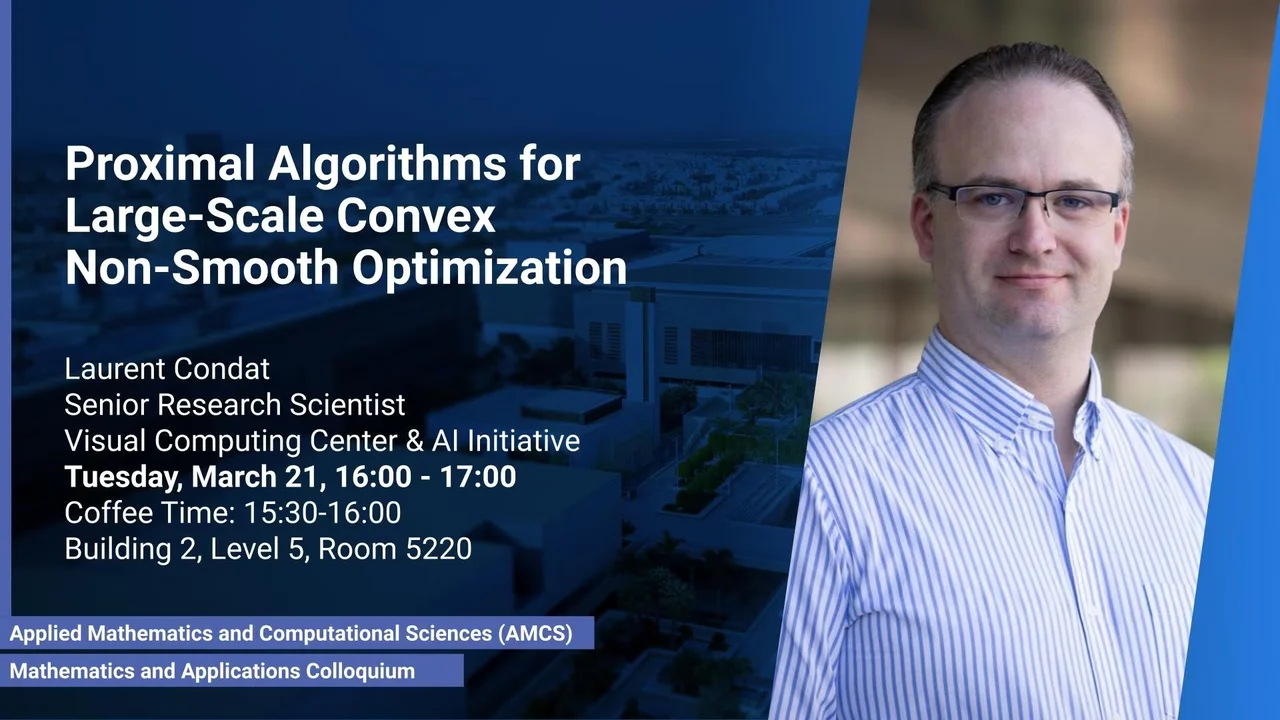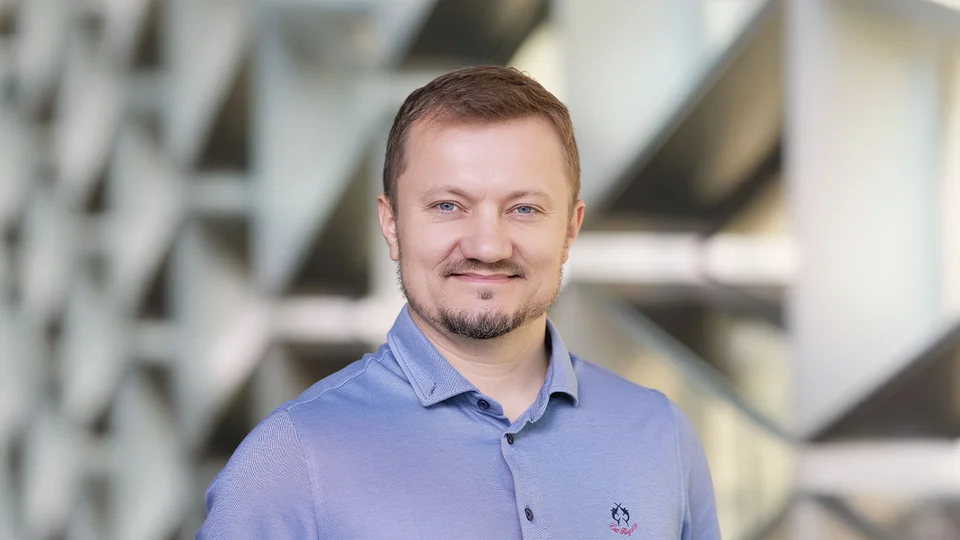
Proximal Algorithms for Large-Scale Convex Non-smooth Optimization
Convex nonsmooth optimization problems, whose solutions live in very high dimensional spaces, have become ubiquitous. To solve them, the class of iterative fixed-point algorithms known as proximal splitting algorithms is particularly adequate: they consist of simple operations, handling the terms in the objective function separately. I will present a selection of recent primal-dual algorithms within a unified framework, which consists in solving monotone inclusions with well-chosen spaces and metrics.
Overview
Coffee Time : 15:30 - 16:00
Abstract
Convex Non smooth optimization problems, whose solutions live in very high dimensional spaces, have become ubiquitous. To solve them, the class of iterative fixed-point algorithms known as proximal splitting algorithms is particularly adequate: they consist of simple operations, handling the terms in the objective function separately. I will present a selection of recent primal-dual algorithms within a unified framework, which consists in solving monotone inclusions with well-chosen spaces and metrics. This modern view is detailed in our tutorial paper "Proximal Splitting Algorithms for Convex Optimization: A Tour of Recent Advances, with New Twists". I will also present our last contribution, a generic algorithm called RandProx with a randomized dual update. It opens the door to benefiting from randomness, like with stochastic-gradient-type algorithms, in a much more general setting.bstract text.
Brief Biography
Laurent Condat received two Master's degrees, in computer science and applied mathematics, and a PhD in applied mathematics from Grenoble Institute of Technology, Grenoble, France, in 2003 and 2006, respectively. He was then a postdoc in the Helmholtz Zentrum Muenchen, Munich, Germany for 2 years. In 2008, he was hired as a permanent researcher by the French National Center for Scientific Research (CNRS). He worked in the research centers GREYC, Caen (2008-2012) and GIPSA-Lab, Grenoble (2012-2019). From 2016 to 2019, he was a member of Section 7 (Information Sciences) of the French National Committee for Scientific Research. Since Nov. 2019, he is on leave from the CNRS and a Senior Research Scientist in the Visual Computing Center and the AI Initiative of King Abdullah University of Science and Technology (KAUST), Thuwal, Saudi Arabia.
Dr. Condat's area of interest spans optimization, signal and image processing, inverse problems, and machine learning. He has co-authored more than 100 articles on these topics. In KAUST, he works closely with Prof. Peter Richtarik on randomized optimization algorithms and their applications in machine learning. Laurent Condat is a senior member of the IEEE and an associate editor of IEEE Transactions on Signal Processing. He received a best student paper award at the conference IEEE ICIP 2005, a best PhD award from Grenoble Institute of Technology in 2007, and several meritorious reviewer awards. Since 2020, he has been in Stanford's list of the world's top 2% most influential scientists.
